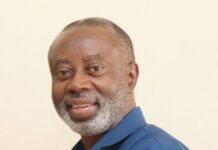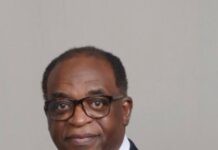#TrackNigeria: Permit me to start by thanking His Majesty, King Abdallah Bin Hussein of Jordan, for the special invitation to speak to you briefly at this event.
I also want to congratulate the World Economic Forum for organizing this forum with the theme of “Building New Platforms of Cooperation”.
In this digital age where physical borders no longer exist to protect even the most secured nations, the only way to overcome predatory and divisionary forces is for all well-meaning nations to work together for the greater good of mankind.
Simply put, cooperation amongst sovereign nations is no longer a choice. It is an absolute necessity. In the last ten years, the world as we knew it has completely changed.
We have seen and experienced significant shifts on many fronts. In Technology; Population and Migration; Trade and Geopolitics; Climate change; and many more.
For some nations, these trends have had positive impacts. But of course, we have also seen the negative and destructive outcomes of these trends in other countries. It is my view, that no region of the world has felt the full impact of these dramatic shifts and shocks like the Middle East and Africa – North and Sub-Sahara.
On one hand, our region is blessed with a very young, vibrant, enterprising and dynamic population. We also have valuable natural resources that are the envy of many nations. These assets and endowments contributed to our region experiencing some of the highest economic growth rates in the world.
On the other hand however, we have also been hosts to some of the deadliest conflicts in recent history. The deaths, damage and destruction caused by terrorist groups such as Al Qaeda, ISIS and Boko Haram over the last ten years will take decades to repair.
By the special grace of God, today, most of these terrorist organizations have been significantly degraded. The world came together to achieve this. Now, we are faced with the task of rebuilding. It is at this point that we must ask ourselves how we, as a region, got to this point. The answer, at least in the case of Nigeria, is the lack of social and economic inclusion.
As Nigeria celebrated being the largest economy in Africa and one of the fastest growing economies in the world, Nigerians were migrating in droves through harsh desert conditions and across treacherous seas to seek what they believe would be a better life in Europe.
Ladies and gentlemen, I strongly believe that the lack of social and economic inclusion was the root cause of many challenges we are experiencing. Today, our population is one hundred and ninety million people. By 2050, it is estimated that we hit three hundred and ninety million making us the third most populous country in the world. This means we must start working now to ensure this population is productively engaged.
In the last four years, we focused on security while implementing inclusive policies. On the security front, we made significant gains in fighting Boko Haram. We have recaptured all territories held by Boko Haram in 2014. We have liberated thousands of Nigerians held against their will.
Today, I am pleased to say no territory in the Federal Republic of Nigeria is held or controlled by Boko Haram. We are extremely grateful to the many countries that have stood with Nigeria to confront this global scourge and in particular, the Kingdom of Jordan under the leadership of His Majesty, the King.
Furthermore, our economic diversification and social inclusion policies are also yielding positive results. Our country has now returned to the path of growth. We are making gains in the ease of doing business indices. A key driver for growth is the agricultural sector where we aggressively pushed agricultural policies that empowered millions of our rural citizens.
In the spirit of “Building New Platforms of Cooperation”, we partnered with the Kingdom of Morocco to domesticate fertilizer production in Nigeria and revive over two million tons of abandoned fertilizer blending plant capacity. The outcome is we created tens of thousands of jobs in agriculture, logistics, manufacturing and retail sectors. We are able to achieve moderate growth. But it was inclusive.
Nigeria is now at a new dawn and embarking on a new development trajectory. We are determined to industrialise Nigeria leveraging our comparative advantage. We recognize the private sector as the engine of growth and a veritable partner in our economic agenda. The Middle East is a natural partner.
Africa and the Middle East must therefore focus on policies that will deliver shared economic prosperity for all our citizens. On trade and investments for example, we can do more. Africa represents only five percent of Jordan’s trade with the world. But we have the resources, the people and the markets to do more.
Opportunities exist in key job creating sectors such as Agriculture, Health, Tourism, ICT, Infrastructure as well as Textile and garmenting to mention a few. Our new, inclusive and diversified Nigeria is definitely open for business. Our population, resources, policies and programs make it the most attractive investment destination in Africa.
As friends and allies, we must therefore cooperate and leverage on our relative strengths. We must remain open to “Building New Platforms of Cooperation”. As we deliberate over the next two days, I would ask all leaders present to reflect on our collective experiences. We must identify how we can work together.
Today, we are living in a new world. In this new world without borders, my personal view is stability and sustainability can only be achieved through inclusive economic growth, and enhanced cooperation amongst nations.
I thank you all for listening and I wish you a very successful and productive summit.



